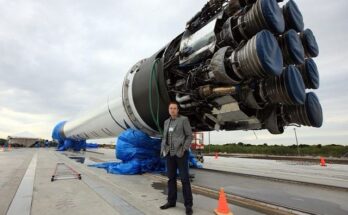
In a rare and dramatic turn of events, a United Airlines flight en route to Edmonton, Alberta was forced to make an emergency landing shortly after takeoff from Denver International Airport when one of its engines caught fire mid-flight. The incident, which occurred on April 15, 2025, has drawn international attention—not only because of the terrifying visuals captured by passengers, but also due to the bizarre and uncommon cause: a rabbit strike.
The Boeing 737 aircraft had just departed from Denver with 159 passengers and crew on board when the crew detected an issue with one of the engines. Witnesses aboard the flight reported hearing a loud bang followed by visible flames shooting from the side of the plane. Almost immediately, the pilots declared an emergency and turned back toward Denver.
According to preliminary reports from aviation officials and wildlife safety experts, the engine fire was caused by a rabbit that had been ingested into the engine during takeoff. While bird strikes are a known hazard in aviation, rabbit strikes are virtually unheard of, making this incident particularly unusual. Authorities believe the rabbit had wandered onto the runway area, highlighting the challenges airports face with wildlife management on their grounds.
Despite the harrowing situation, the flight crew responded with professionalism and precision. The plane returned safely to Denver International Airport approximately 75 minutes after takeoff. Emergency responders were on standby, but no injuries were reported among passengers or crew.

Videos taken by passengers from inside the aircraft went viral soon after the landing, showing flames bursting from the engine and passengers reacting with visible concern. Many onboard commended the flight crew for keeping everyone calm and informed during the ordeal.
United Airlines has confirmed the incident and stated that the aircraft will undergo a full inspection and maintenance review. In the meantime, the airline has offered support to the affected passengers, including rebooking flights and providing compensation for the inconvenience.
Aviation experts note that while mechanical failures and wildlife strikes are rare, they are not entirely preventable. Airports implement a range of wildlife control measures, from fencing and habitat management to the use of trained animals and pyrotechnics to deter animals from entering active runway areas. However, smaller ground animals like rabbits can sometimes go unnoticed.
This incident has reignited discussions about airport safety and the importance of constant monitoring for wildlife activity. Denver International Airport has indicated that it is reviewing its wildlife control protocols in response to the incident.

Although the cause of the engine fire may seem like something out of a bizarre storybook, the successful outcome—an emergency landing with no injuries—is a testament to the importance of pilot training, airport readiness, and modern aviation safety systems.
As investigations continue, the story stands as a strange but powerful reminder of how even the most routine flights can take an unexpected turn—and how the quick thinking of trained professionals can make all the difference.


